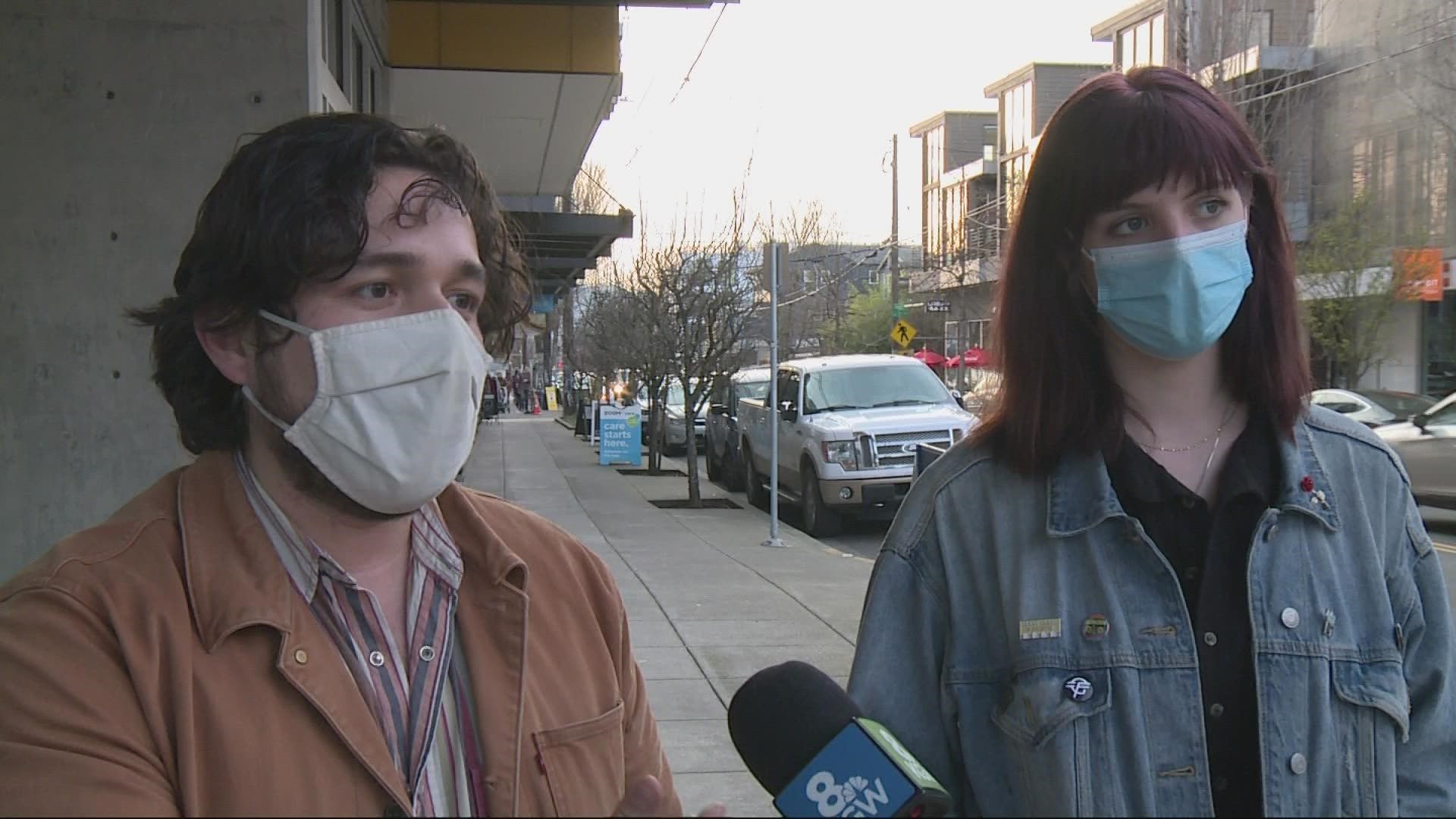PORTLAND, Ore. — Mask mandates covering both Oregon and Washington came to an end as of Saturday morning, moving from a universal requirement to an optional recommendation in most indoor areas.
Both states committed to rolling back their mask mandates for schools and indoor public spaces at 11:59 p.m. Friday night, a change prompted by sustained decreases in COVID-19 case rates and hospitalizations over the past month as the omicron wave recedes.
Oregon health and education officials discussed the changes at a press conference Friday afternoon, shortly after the Oregon Health Authority announced a new pandemic plan called Resilience in Support of Equity (RISE), signaling the start of the "recovery phase" of the state's pandemic response.
"The pandemic has become like a wildfire we've contained but not extinguished, and which therefore continues to pose a risk," OHA Director Patrick Allen said in a statement. “RISE is a plan for managing that wildfire in a way that leverages the ability of communities to fight it at the local level, with support from Oregon’s public health system."
Oregon's pandemic management has been highly successful, the OHA said in a news release; the state now ranks second lowest in the U.S. for COVID cases per 100,000 people and seventh lowest in deaths.
But there have also been significant inequalities that the RISE plan hopes to address, including infection rates nearly twice as high and death rates more than twice as high for tribal communities and communities of color.
The program will focus on five key areas, Allen said: Prioritizing the hardest-hit communities, protecting COVID-vulnerable people, expanding access to healthcare, keeping schools safe for students and restoring social cohesion by supporting priorities of local communities.
The overall level of COVID transmission is low enough to justify repealing the mask mandate in most places, state epidemiologist Dr. Dean Sidelinger said, but masks will still be required in health care settings because of high-risk patients, and because medical staff face a higher risk of exposure.
Masks will also still be required after March 12 on public transportation, in accordance with a separate federal mandate that was recently extended through April 18.
The rules for all other public spaces will be up to individual businesses and school districts; they can still choose to mandate masks in their buildings past March 12, but they will no longer be required to do so.
Many Oregon businesses, including the Moda Center, have signaled that they will stop requiring masks as soon as the state mandate ends, and several school districts, as well as colleges and universities, will shift to optional masking.
Others have taken a more cautious approach. Several performance arts venues in Portland — including the Oregon Symphony, Portland Center Stage, Milagro Theatre and The Reser — said they would continue to require face masks and proof of vaccination for audiences after the statewide mandate ends Saturday.
Multnomah County health officer Dr. Jennifer Vines hailed the masking change as a "great milestone" earlier this week, although she noted that many people may want to keep wearing their masks for the time being.
"I think we all need to be patient and expect to see people in masks because they choose to be or feel they need to be for their own health risks or because they are taking some steps to protect others they feel they need to take," she said.
Oregon Department of Education director Colt Gill struck a similar tone on Friday, saying that any student or school staff member who wants to keep wearing a mask should be able to do so.
Allen and Sidelinger said Oregon will continue to monitor case rates and early indicators like wastewater virus levels, and will maintain the ability to scale up testing, vaccination and hospital capacity in the event of another surge.
“While the recent data is incredibly encouraging, it’s important to remember the pandemic is not over," Sidelinger said.
COVID has not yet reached the point where it can be considered endemic like the flu or a cold, he said, because the virus is still too unpredictable, with the potential for another variant to emerge and set off a new wave of cases — although there are currently no worrisome variants on the horizon, he added.
Oregon's general approach from here on out will be to leave health and safety measures up to local communities, Allen said, but he didn't rule out the possibility of reinstating the mask mandate or other state-level restrictions during a future surge, particularly if statewide hospital capacity is threatened.
Watch the full press conference here:
The Associated Press contributed to this story.

